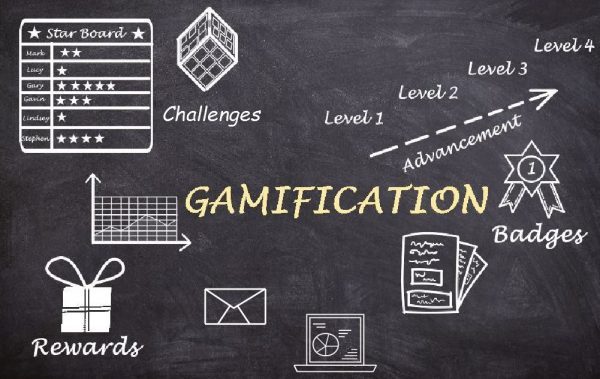Dispositions are qualities one possesses or acquires to meet the expectations of a profession. The dispositions developed by the Sanford College of Education are the professional standards and dispositions that teachers must possess and adhere to be effective in their classroom and the profession. The Professional Dispositions self-assessment survey will be completed at various points of the program of your studies to ensure you possess an understanding of the foundational topics that govern an educator’s practice, including understanding professional standards of practice, code of ethics, and relevant laws. Disposition self-assessment allows teacher candidates to reflect upon and assess their teaching and learning. As a faculty, we appreciate your efforts in completing this survey in an honest and thoughtful way.
- The first self-assessment is completed in ITL 600 Becoming a Teacher using an integrated link. In addition, write a 2-3 page reflection paper.
- The second self-assessment will be completed in ITL 510 or ITL 520 using an integrated link.
- The final self-assessment will be collected in Clinical Practice Student Teaching or Internship using an integrated link.
For Assignment 1C we were to download and complete the self-assessment form. Once completed, we were to write a 2-to-3-page reflection paper based on the results of the dispositional self-assessment survey we just completed. In doing so, we were to respond to these prompts:
- Describe one area of strength and one area you would like to improve.
- In the area you would improve, develop a plan identifying and discussing what you want to achieve to improve (goal) and how you will have achieved your goal (assessment).
- Make sure to use action words such as Professionalism, Collaboration, and Teacher-Student-University Interaction.
- How are you going to achieve your goal for improvement?
- What evidence will you need to confirm you are accomplishing your goal?
- Since this is your initial self-assessment, why is this important for your growth at this time?
- What do you want to ultimately accomplish in terms of professional dispositional growth?
- In relation to your dispositional growth, discuss the implication of your identified dispositional goal for improvement and your ‘strength’ goal.
- Explore and describe why these two goals (improvement & strength) are important for taking responsibility for your own learning and successfully working with students and their families.
SPD Disposition Survey
Disposition self-assessment allows teacher candidates to reflect upon and assess their teaching and learning.
Professionalism
1. Which of the following applies to you?
Inconsistent appropriateness in written communication skits
X Consistent appropriateness in written communication skills
2. Which of the following applies to you?
Inconsistent appropriateness with verbal communication skills
X Consistent appropriateness with verbal communication skills
3. Which of the following applies to you?
Inconsistent in task completion in a timely manner
X Consistently completes tasks in a timely manner
4. Which of the following applies to you?
Inconsistently punctual
X Consistently punctual
5. Which of the following applies to you?
X Inconsistently demonstrates professional/appropriate attire for your work setting
Consistently demonstrates professional/appropriate attire for your work setting
6. Which of the following applies to you?
Inconsistent In maintaining confidentiality
X Consistent in maintaining confidentiality
7. Which of the following applies to you?
Inconsistently shows respect to all stakeholders
X Consistently shows respect to all stakeholders
8. Which of the following applies to you?
Inconsistent in following administrative school policies and procedures
X Consistently follows administrative school policies and procedures
9. Which of the following applies to you?
Inconsistently demonstrates self-reflective practice
X Consistently demonstrates self-reflective practice
10. Which of the following applies to you?
X Inconsistently accepts constructive criticism
Consistently accepts constructive criticism
11. Which of the following applies to you?
Inconsistently accept s responsibility for one’s actions
X Consistently accepts responsibility for one ‘s actions
Collaboration
12. Which of the following applies to you?
X Inconsistent interaction with mentors, colleagues, and professors
Consistent interaction with mentors, colleagues, and professors
13. Which of the following applies to you?
X Inconsistently addresses problems with mentors, colleagues, and professors
Consistently addresses problems with mentors, colleagues, and professors
14. Which of the following applies to you?
X Inconsistently demonstrates follow-through with mentors, colleagues, and professors
Consistently demonstrates follow-through with mentors, colleagues, and professors
Teacher-Student Interaction
15. Which of the following applies to you?
Inconsistently demonstrates appropriate boundaries with students
X Consistently demonstrates appropriate boundaries with students
16. Which of the following applies to you?
Inconsistently demonstrates appropriate communication with students
X Consistently demonstrates appropriate communication with students
17. Which of the following applies to you?
Inconsistently demonstrates how to work well with students of diverse needs
X consistently demonstrates how to work well with students of diverse needs
18. Which of the following applies to you?
Inconsistently demonstrates strong rapport with students
X Consistently demonstrates strong rapport with students
ITL Teacher Dispositions Self-Assessment 1C
Frank Jamison
National University
ITL 600: Becoming a Teacher
Dr. Gavin Hooker
July 9, 2023
ITL Teacher Dispositions Self-Assessment 1C
After taking the SPD Disposition Survey, I have identified many strengths and a few weaknesses. I believe my greatest strength lies in my ability to communicate, both verbally and in writing. By contrast, my greatest weakness is my tendency to not follow through with mentors, colleagues, and professors. This is an area that I would most like to improve upon.
As an example of my poor interaction skills with mentors, I am part of a program with a company called Omada, which is designed to help me manage my diabetes. We have weekly lessons to complete and goals to identify and work upon. I have not been faithfully keeping up with these lessons, and I am finding excuses to not identify and work toward goals for improvement. My main issue is that I find these things inconvenient and reason that other obligations take higher priority.
My fear is that this tendency to prioritize things I find more appealing and put other equally, if not more important, things to the wayside will manifest itself in my professional career as an educator. In this regard, it is important that I overcome this weakness in my character and fully engage with the mentors I have available to me in all aspects of my life. What I would like to achieve here is the ability to follow through on the advice of mentors regardless of the level of inconvenience or difficulty.
In the short term, my goal will be to catch up and faithfully complete the Omada program. Through this I will learn to prioritize those difficulties that I face in any situation and apply that knowledge to my career as a professional educator. I will achieve this goal by identifying goals that are provided for me by the Omada mentors and completing the weekly tasks and course assignments. By applying the collaborative and time-management skills I learn in this program to my professional life, I will become a better educator and gain insight into how to help my students, who may face similar difficulties.
The evidence I need to accomplish this goal will be the successful completion of the Omada program and a reduction in my overall A1C lab results, body mass, and intake of those sweet, delectable treats I am so fond of. Over the past few months, I have taken some of the things I have learned through the Omada program and applied it to my lifestyle. In my last lab results, my A1C dropped from 9.2 to 6.6, which is a vast improvement. I just need to continue to use the principles I have learned and apply the more difficult ones that I find so inconvenient.
The ability to follow through on the advice of mentors, whether in my personal or professional life, is vital to my success as a teacher. It is important at this stage of my education because I will have many mentors in this program that I will need to listen to and learn from. If I put off the difficult and inconvenient tasks, I may miss key information and practices that will aid me in my future career. In short, by listening and following through on the advice of mentors, I will become a better teacher and mentor to my own students. This is what I ultimately want to accomplish in terms of my professional dispositional growth.
Dispositional growth in listening and collaborating with mentors is crucial for personal and professional development. By actively cultivating these skills, I can enhance my ability to absorb information, understand diverse perspectives, and build effective relationships. By being open and receptive to feedback and guidance from mentors, I will gain valuable insights, refine my skills, and make better decisions.
Effective communication is an essential skill in any educational setting and is one of my key strengths. By setting a strength goal focused on communication, I can further develop my ability to convey information, ideas, and feedback clearly and concisely. Strong communication skills enable me to foster positive relationships with students, families, and colleagues, as well as create an open and supportive learning environment.
By honing my communication skills, I can effectively articulate my thoughts, actively listen to others, and adapt my communication style to different audiences and situations. I can express empathy, provide constructive feedback, and ensure that important information is conveyed accurately. This will lead to improved collaboration, stronger partnerships with families, and enhanced student engagement and achievement. By embracing both my improvement and strength goals, I will take responsibility for my own learning, enhance my effectiveness in working with students and their families, and contribute meaningfully to my personal and professional growth.
Assignment Grade: 10/10



